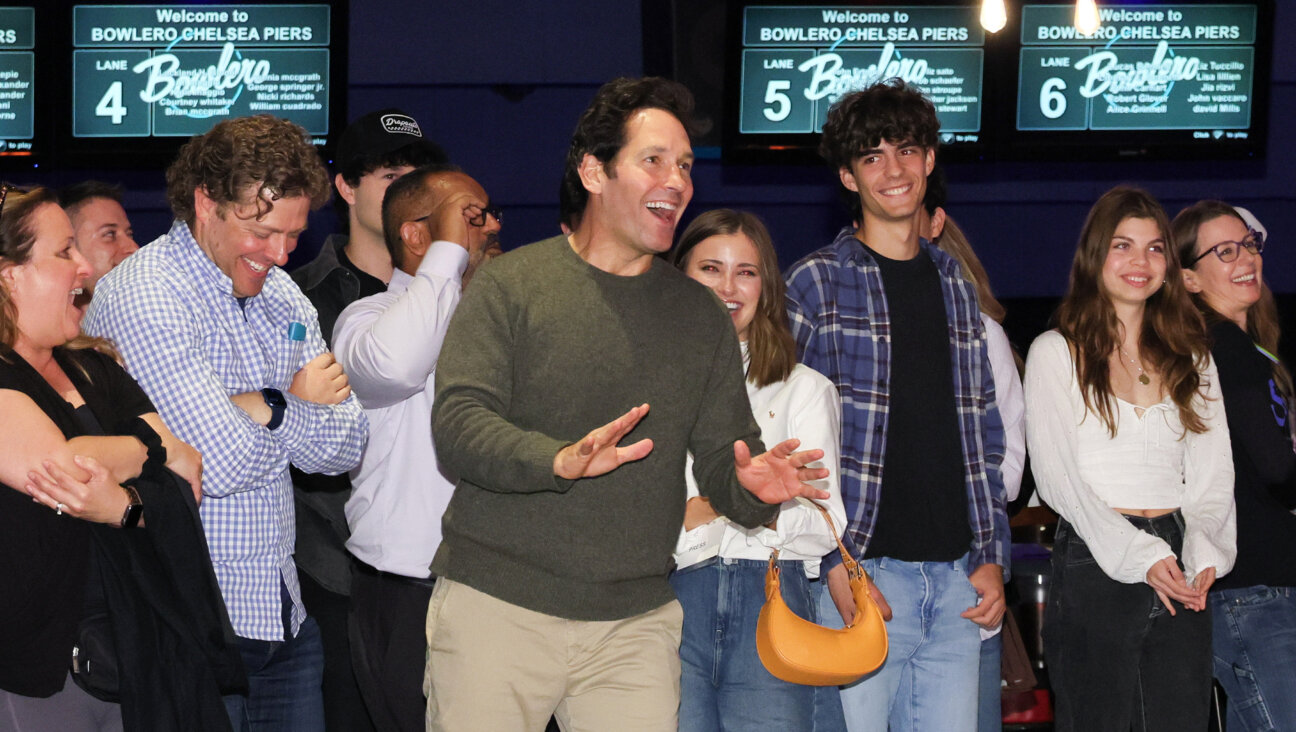The Joys of Fashion
Carrie Rosten is a big believer in fate, and in letting the chips fall where they may. A woman who has worn many hats in the course of her career, she has done everything from designing her own line of clothing to providing the wardrobe styling for everyone from supermodels to rock bands to Paris Hilton, to selling some of her designs for use on such TV shows as “Friends” and “The O.C.” The 29-year-old’s latest career move, however, points her in a new creative direction — her debut novel, “Chloe Leiberman (Sometimes Wong)” (Delacorte Books for Young Readers), was just released last month. The move shouldn’t come as that much of as surprise, as writing is in her blood. Her grandfather was acclaimed humorist and literary jack-of-all-trades Leo Rosten, and her great uncle William Steig was the author of the book “Shrek.” In addition, on closer look “Chloe Leiberman” is a novel obsessed with fashion in all its variegated permutations.
Rosten began in the fashion trade as a designer of women’s shirts made out of traditional menswear fabrics. Sales were less than brisk, but she was unfazed. “I didn’t regret it, since the ‘failure’ of that business birthed my styling career,” Rosten told the Forward. Through contacts she had made, Rosten found work as a stylist for commercials, indie films, music videos and celebrity appearances, and as a brand consultant. Through her business she met film producer Ross Bell (“Fight Club”), who encouraged her to try her hand at writing: “He approached me about writing a screenplay based on a group of style-savvy superhero girls I had created for Mattel” as a creative consultant in 2001. Rosten wrote the script, her first effort as a writer, but it never quite took off; nevertheless, a Random House executive liked it enough to suggest pitching a fashion-based story about growing up biracial in Southern California. Hence, Chloe Leiberman (sometimes Wong) was born.
Rosten’s novel, intended for young adults but enjoyably read by teenagers of all ages, is a comic romp through the life of high school senior Chloe Leiberman. It’s structured as a series of application essays to Central St. Martins, the legendary London school of design. Having “forgotten” three times to take the SATs, Chloe finds herself in hot water with her parents. She finds solace in the company of her friends and her understanding grandmother Pau-Pau, and she plans to apply to design school behind the backs of her unaccepting parents. Rosten describes herself as a “Chinese/Polish/Jewish WASP,” and applies some of her jumbled background to Chloe, who, like Rosten, is half-Jewish and half-Chinese, and to the book as a whole, which reads like an advertisement for multicultural urban life. “Chloe Wong Leiberman is a reflection of one aspect of me, and beyond that I do believe she represents a budding sort of hybrid-culture that makes this time in America so particularly interesting and unique,” Rosten said. Chloe spends quality time with her Chinese grandmother, who teaches her to sew, her Jewish grandfather, who mopes around the house in designer tracksuits, and her Hispanic best friend, who keeps her updated on all the latest slang.
In an e-mail interview with the Forward, Rosten reflected on the legacy that her grandfather, the author of “The Joys of Yiddish,” left her as a budding writer: “Grandpa Leo made it clear that being a professional writer was, well, normal… so yes, he did indeed set that tone, that very American tone that anything is possible to manifest, whether your dream is to write novels or to make stellar falafel!”
With books like “The Education of H*Y*M*A*N K*A*P*L*A*N,” Leo Rosten made his name by poking fun at the foibles of the Jewish immigrants of the 1930s. By taking as her subject the early 21st century’s multicultural jumble, the younger Rosten picks up where her grandfather left off. His influence is also present in her book’s linguistic and cultural diversity, which requires an offbeat glossary of Yiddish and Chinese terms for unfamiliar readers.
Rosten has taken a wide range of cultural tics and influences and put them on shuffle in Chloe, whose very name reflects some of her confusion. But what is most intriguing is the lack of emphasis placed on the resulting puree. Chloe’s family background simply is, and is presented with, minimal fuss or apology. For Jews, for whom the issue of intermarriage is a burning one, it may be an experience simultaneously soothing and jarring to read just how easily Pau-Pau and Zeyde manage to coexist in the world of Chloe Leiberman, and how those two cultural traditions sit comfortably within Chloe herself.
Rosten’s book is much more intrigued by the possibilities for stylistic jumble promised by fashion. Each chapter opens with a Do and Don’t familiar from the back pages of many a fashion magazine, and Chloe spends much of the book explaining — and dealing with the consequences of — her “fashion disorder,” which is an uncontrollable compulsion to personally atone for the fashion crimes of others by rearranging and redoing their outfits, sometimes even blurting out suggestions to the victims themselves. Juggling her F.D. and her parents’ ire, Chloe is privileged and troubled — a young woman whose saving grace is her natural gift for seeing beauty in fashion. Rosten’s background in the industry and familiarity with life as a fashion-obsessed teenager helped her flesh out Chloe and her milieu. “It wasn’t easy, but it certainly was natural. Creating Chloe and telling her story, as a teenager awkwardly anticipating and yearning to come into her own ‘shoes’ (pardon the pun) rather than her family’s or her friends, school, etc…. was natural for me to explore, since I had explored and experienced the same kinds of feelings when I was a teenager and frankly, I still do. I am still on that path.”
Saul Austerlitz is a writer living in New York.
A message from our CEO & publisher Rachel Fishman Feddersen

I hope you appreciated this article. Before you go, I’d like to ask you to please support the Forward’s award-winning, nonprofit journalism during this critical time.
At a time when other newsrooms are closing or cutting back, the Forward has removed its paywall and invested additional resources to report on the ground from Israel and around the U.S. on the impact of the war, rising antisemitism and polarized discourse..
Readers like you make it all possible. Support our work by becoming a Forward Member and connect with our journalism and your community.
— Rachel Fishman Feddersen, Publisher and CEO























